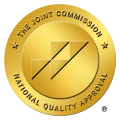Billing VA Insurance for
a Veteran’s Addiction Treatment
Does the VA Pay for Addiction Treatment?
Countless military veterans suffer from substance use disorder and require addiction treatment. VA insurance, although tricky to use, provides several options for rehabilitation. The most common options include:
Tricare
Tricare is a government run and funded health provider for military members and their dependents. VA insurance covers several forms of addiction treatment such as inpatient, outpatient, various forms of therapy, and medication related to recovery. The only treatment methods VA insurance with Tricare won’t cover are unproven treatments such as pseudo-science or aversion therapy.
Veteran’s Choice
The Veteran’s Choice Program (VCP) was only available to veterans who could not easily travel to a VA clinic. There were certain criteria to qualify for VCP including but not limited to:
- Living more than 40 miles away from a VA hospital
- Being unable to make the trip due to environmental or local conditions
- Living in a town without a full-service VA hospital
If admitted, VCP allowed a veteran to seek help in a non-VA hospital. In that scenario, VA insurance covered all treatments including addiction treatment. However, the Veterans Choice Program was discontinued in favor of Community Care. 1
Community Care
Community Care is a program for veterans who require treatment that their local VA hospital can’t provide. The treatment can include surgeries, consultations, tests, and more. Like the Veteran’s Choice Program, there are eligibility requirements, including but not limited to local medical limitations, wait times, etc. If enacted under the Community Care program, VA insurance will cover the cost of any treatment, including drug rehabilitation. 2
Mission Act
The Mission Act, also known as the Veteran’s Choice Act, was ratified in 2014 by President Barack Obama. The goal of the act was to expand the available treatment options for veterans. Before this act, thousands of veterans were thought to have gone without treatment or consultation for various illnesses, including substance use disorder. It’s through the Mission Act that programs such as Community Care were created. 3
Tricare and Addiction Treatment
Requirements
As a military-focused provider, Tricare and VA insurance are only available to a small percentage of the population. The most significant requirement for Tricare and VA insurance is to be either active duty or retired from service. However, the average veteran isn’t retired from service.
Most veterans are discharged or separated from service, which differs from retirement. Typically, retired veterans have spent 20+ years in service or have sustained life-changing injuries in the line of duty. Should a veteran sustain said injuries, they’re considered medically retired. Someone like a 4-year veteran that’s been honorably discharged and who may have injuries or substance use issues related to military service is not eligible to receive Tricare insurance.
Problems with Access
VA insurance offers limited eligibility. Most veterans are non-retired prior service veterans and don’t qualify for Tricare coverage. Approximately 1.7 million veterans are without healthcare after losing their VA insurance. Furthermore, not all military members are afforded the same medical coverage. Coverage and details can differ from each branch of the military. 4
Veterans Choice Program and Addiction Treatment
Veterans Access, Choice and Accountability Act of 2014
The Veterans Access, Choice and Accountability Act of 2014 was billed to provide a wider range of veterans with the medical services they need. Unlike Tricare, Veterans Choice could be obtained by prior service veterans. The act also employed less restricted eligibility. Overall, the program was used to expand on already existing programs such as ARCH, VCC, and others. It also stressed the importance of collaboration with local medical providers.Program Shift to Community Care
The Required Sunset Coverage in the Mission Act of 2018 changed Veterans Choice to Community Care. Where Veterans Choice ended, Community Care began. The shift to Community Care was to further expand treatment options for veterans. 5
Addiction Treatments Covered
Community Care covers essentially all forms of addiction treatment except for aversion and un-proven treatment methods. Covered treatments include medical, social, psychiatric, and detox.Mental Health Treatments Covered
Community Care offers mental health treatments. These options include but are not limited to counseling, drug screenings, recovery groups, long-term care plans, and inpatient treatment.Eligibility Requirements
Eligibility for Community Care is dependent on the following four requirements:- All non-VA providers must be expressly approved by a VA doctor
- VA staff determines which providers are eligible
- Veterans must be enrolled in VA insurance or eligible to enroll
- All eligibility is dependent on the overall health of the veteran in question 6
MISSION Act for Addiction Treatment
VA MISSION Act of 2018
The VA Mission Act of 2018 further expands the medical network available to veterans. As of 2018, more family care providers, like live-in nurses, are eligible to join the network. Family care providers now have access to the PCAFC, a program designed to pay a monthly stipend to care providers who work with veterans.
Addiction Treatments Covered
The VA Mission Act of 2018 covers all the treatments including inpatient, outpatient, detox, and psychiatric.Mental Health Treatments Covered
The insurance covers all of the prior mentioned mental health treatments; this includes support groups, therapy, counseling, and medicine.Eligibility Requirements
The requirements for the VA Mission Act of 2018 are as follows.- Non-VA providers must be preapproved
- VA has the final say on approved providers
- A veteran must already be enrolled in VA insurance or be eligible for enrollment
- Eligibility is based on overall personal health
Frequently Asked Questions About VA Benefits for Community Addiction Treatment
The Difference Between Veterans Choice, Community Care, and Mission Act
The biggest difference between the VCC, Community Care, and the Mission Act is when each occurred. Veterans Choice started in 2014 and continued until the Mission Act was signed into law. Under the Mission Act, Veterans Choice was shut down and remade as the Community Care Act. In summary, the Mission Act is the overall law used to fund and support Community Care. 7Costs and Copays
Costs and copays vary based on length of service, injury, number of visits, and required treatment. The best way to figure out if you have a copay is to speak with a VA doctor and/or use VA resources.
Private Insurance
Navigating private insurance coverage with addiction treatment is difficult. Effective drug rehab encompasses the medical treatment, detoxification, therapy, time, and other factors that private insurance may not cover. It’s entirely dependent on the plan, provider, and the abused substance.Medicare
It’s worth noting that although Medicare does cover drug rehab, it doesn’t have a specific classification for it. Medicare covers drug rehabilitation the same way it would cover recovery from invasive surgery. This means that as long as the treatment is deemed necessary, it’s potentially eligible for coverage. However, this can vary based on individual reasons. 8
Medicaid
Medicaid can cover drug and alcohol rehabilitation. However, eligibility varies based on state laws, individual reasons, and level of coverage.The Complexity of Billing the VA for Addiction Treatment
How to Code the Services
Billing the VA requires knowledge of numeric codes ranging from 5000-9999 to relay information about the medical diagnosis. Without proper training, it’s near impossible to discern which codes are applicable and when. The first 2 digits of a code are to determine the bodily location of the ailment and the affected systems. The last 2 reveal the illness and recommended treatment.
In rare cases, the code is hyphenated to include more digits. VA codes for addiction treatment will include the abused substance and required treatment.
Which Programs to Bill Under
VA insurance provides access to numerous drug rehabilitation programs, most of which have different eligibility requirements, timelines, and other factors. It takes proper training and a keen mind to determine which program is best. Additionally, VA codes for addiction treatment may change the applicable billing program.
Calculating Copays and Deductibles
Copays are deductibles based on individual health plans and restrictions. Ensuring that you are not being over or undercharged can save time and money in the future.
Handling Insurance Subrogation for Medicare and Medicaid
Subrogation refers to the event of an insurance agency pursuing a 3rd party they deem is responsible for the debt. Insurance subrogation can be lengthy and requires an in-depth knowledge of insurance laws.
Handling Insurance Subrogation for Private Insurance
From the standpoint of a veteran, subrogation can be quite positive. If a veteran requires treatment for an injury or illness caused by military service, then they are no longer financially responsible for the treatment. Because the military caused said ailment, the military is responsible under subrogation. It’s best to speak with a trained professional before pursuing subrogation.The Solution to the VA Billing Complexity Problem
Partner with a Practice Experienced in Billing the VA
VA billing requires comprehensive training and time to do it efficiently. Save yourself time and energy by choosing Headlands ATS.
- Speed Payments to Improve Your Cash Flow – Boost your cash flow by trusting a trained and experienced staff with your VA billing. Headlands ATS can improve your payment schedule.
- Avoid Billing Pitfalls – Billing pitfalls cost you time and money to fix. Hire a trained professional to lower the chance of incorrect billing, malpractice, and more.
- Avoid Administrative Hassles – Dealing with the VA means filing and learning new forms and navigating a bureaucracy. Avoid the by choosing Headlands ATS.
Resources
https://news.gallup.com/poll/329708/lgbt-identification-rises-latest-estimate.aspx
https://williamsinstitute.law.ucla.edu/visualization/lgbt-stats/?topic=LGBT&area=6#density
https://www.glaad.org/reference/lgbtq
https://www.thetrevorproject.org/trvr_support_center/glossary/
https://www.drugabuse.gov/publications/media-guide/science-drug-use-addiction-basics
https://www.ncbi.nlm.nih.gov/pmc/articles/PMC4887282/#R59
https://jeatdisord.biomedcentral.com/articles/10.1186/s40337-020-00327-y
https://bmcpublichealth.biomedcentral.com/articles/10.1186/s12889-019-7346-4
http://files.eqcf.org/wp-content/uploads/2017/06/84-Internet-Citation-Note.pdf
https://ps.psychiatryonline.org/doi/full/10.1176/appi.ps.201900029
https://pubmed.ncbi.nlm.nih.gov/25993344/
https://www.ncbi.nlm.nih.gov/pmc/articles/PMC4536098/
https://www.ajpmonline.org/article/S0749-3797(20)30275-0/fulltext
https://www.sciencedirect.com/science/article/abs/pii/S0376871619301747




